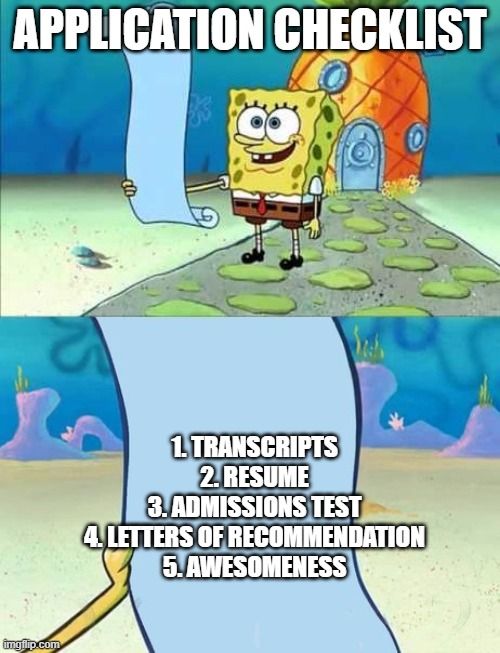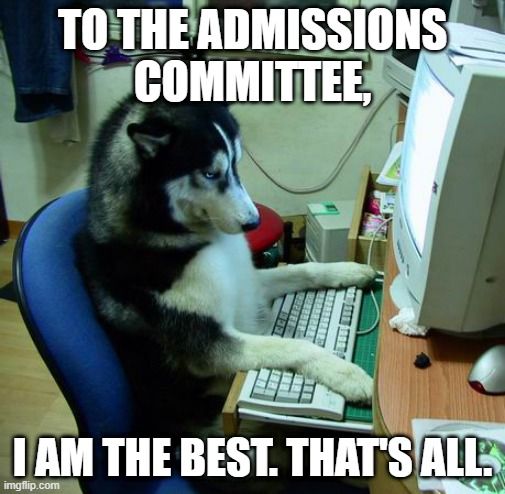
This logo isn't an ad or affiliate link. It's an organization that shares in our mission, and empowered the authors to share their insights in Byte form.
Rumie vets Bytes for compliance with our
Standards.
The organization is responsible for the completeness and reliability of the content.
Learn more
about how Rumie works with partners.
You have decided to apply to graduate school; now what?

It’s time to prepare your admissions application!
Remember, your application's goal is to convince the admissions committee you will succeed in the program, and these tips can help!
Do Your Research!
Before diving in, first research the program's deadlines and requirements you are applying for.
Without this info, your application may not be reviewed.

If you're applying to the same type of program at different schools, don't assume the deadlines and requirements will be the same.
Quiz
What should you do if you miss the deadline?
If you miss a deadline, it's ok! Take the extra time to study for any entrance exams, learn more about the school, or submit early for the next deadline.
Application Breakdown
A graduate program admissions application is a collection of documents that help show who you are as a student.
All graduate applications require transcripts and a resume.
Beyond that, specific program requirements will vary (which is why doing your research is so important!).
Your Personal Statement
If you're asked for a personal statement, use it to showcase why you want to join that program, your experience, and your goals for completing a degree.

Always PROOFREAD… and then have someone else proofread!
Quiz
True or False: Application reviewers will read your entire personal statement.
Reviewers may not read the whole thing - especially if there are errors in the first paragraph or two. Always follow the word/page limit, and if you don't know the limit, ask the admissions office.
Admissions Test

You may have to write an entrance exam for your program.
Give yourself at least 2 months to prepare by signing up for prep classes, tutoring, or finding resources online.
If you have friends applying to similar programs, start a study group.
Prerequisite Courses
Some programs may require prerequisite courses that lay the foundation for advanced topics in your graduate degree.
If taking classes delays you from starting your program, that’s ok; doing well in these courses will strengthen your academic record.

Community colleges may offer low-cost options, and some graduate schools have opportunities for you to "test out" (demonstrate your knowledge without actually having to complete the course).
Letters Of Recommendation
These give an outside perspective on your record and can make or break your admissions application.
Previous professors are often preferred, but supervisors and mentors can also be great choices.

Make sure your references know which school and program you are applying for, and give them plenty of lead time.
Take Action
Preparation is key to your success with grad school applications, so let's get cracking!

This Byte has been authored by
Chanel Figueroa
Passionate about Building Relationships